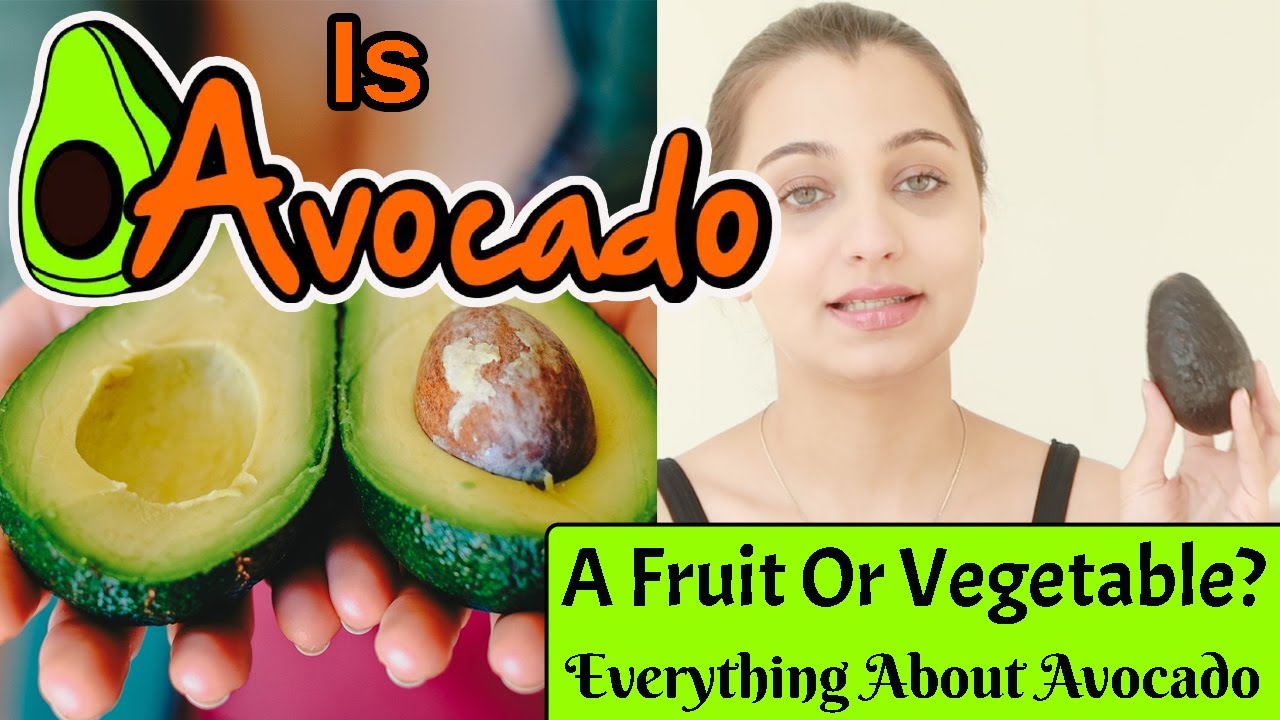The Great Debate Is an Avocado a Fruit or a Vegetable
Avocado, the creamy and nutritious addition to salads, toast, and various dishes, has puzzled many with its classification. Is it a fruit or a vegetable? This question has sparked debates and curiosity among food enthusiasts and botany enthusiasts alike. In this article, we’ll delve deep into the world of avocados to unravel the mystery and provide a clear answer.
Engaging Content:
Create intrigue and emphasize the relevance of the topic.

Defining Avocado: Fruit or Vegetable?
To understand the avocado’s true identity, we must first clarify its botanical classification. From a botanical perspective, avocados are, indeed, fruits. Botanists classify fruits as the mature ovaries of flowering plants, typically containing seeds. Avocado trees (Persea americana) produce fruit that fits this definition. Each avocado is a berry with a single large seed at its core, a characteristic of many fruits.
Botanical Explanation:
Provide a clear and natural language-driven explanation of why avocados are classified as fruits.
The Avocado Botanical Classification
Avocado trees belong to the Lauraceae family and are related to cinnamon and bay laurel trees. They produce clusters of avocado fruits, each technically known as a “drupe.” In botanical terms, a drupe is a fleshy fruit with a single seed encased in a hard shell or pit. This structure aligns perfectly with the avocado, as its flesh surrounds a single large seed, often referred to as the “avocado pit.”
Botanical Details:
Use natural language to describe the botanical features of avocados that classify them as drupes.
Culinary Perspective: Avocado as a Vegetable
While avocados may be classified as fruits botanically, they often find their way into culinary contexts as vegetables. Their mild flavor, creamy texture, and ability to complement savory dishes have earned them a spot in salads, sandwiches, and dips. This culinary perspective explains why many people refer to avocados as vegetables in the kitchen.
Culinary Significance:
Explain how avocados fit into various savory dishes and why they are seen as vegetables in these contexts.
Historical and Cultural Significance
To fully appreciate the avocado’s dual identity, we must explore its historical and cultural significance. Throughout history, avocados have been cultivated and cherished by different cultures. Understanding their role in various cuisines can shed light on why they are sometimes considered vegetables.
Cultural Insights:
Highlight how different cultures have incorporated avocados into their culinary traditions.
Nutritional Value of Avocados
Now that we’ve explored the avocado’s classification, it’s essential to understand its nutritional value. Avocados offer a wealth of nutrients, including healthy fats, vitamins, and minerals. Whether you view them as fruits or vegetables, their nutritional benefits remain undeniable.
Nutritional Insights:
Provide detailed information about the nutritional content of avocados and their health advantages.
Common Misconceptions
In the world of food classification, myths and misconceptions often abound. This section is dedicated to addressing and debunking common misconceptions surrounding avocados’ identity. By dispelling these myths, we aim to provide clarity and accurate information.
Myth Busting:
Use natural language to debunk prevalent misconceptions about avocados.
Avocado Varieties and Uses
Avocado enthusiasts appreciate the diversity of avocado varieties and their versatile applications. From creamy Hass avocados to slightly nutty-flavored Fuerte avocados, each type brings its unique character to the table. In this section, we’ll explore different avocado varieties and how to make the most of their flavors and textures.
Versatility:
Use NLP to explain how different avocado varieties can be used in various culinary creations.
Frequently Asked Questions (FAQs)
1. Q: Is an avocado a fruit or a vegetable from a culinary perspective?
A: Avocado is often considered a vegetable in culinary contexts due to its savory flavor and its common use in salads and savory dishes.
2. Q: Why are avocados classified as fruits botanically?
A: Avocados are botanically classified as fruits because they meet the botanical definition of fruits: they are mature ovaries containing seeds.
3. Q: What is the botanical name for avocados?
A: Avocado trees belong to the Persea americana species and the Lauraceae family.
4. Q: Can you explain the difference between a botanical fruit and a culinary vegetable?
A: A botanical fruit is a mature ovary containing seeds, while a culinary vegetable is a plant part used in savory dishes.
5. Q: Do all avocados have a single large seed in the center?
A: Yes, all avocado varieties have a single large seed, commonly referred to as the “avocado pit.”
6. Q: Are there different types of avocados, and do they have distinct flavors?
A: Yes, various avocado varieties exist, each with its unique flavor profile. For example, Hass avocados are creamy with a slightly nutty taste.
7. Q: Can avocados be both fruits and vegetables depending on the context?
A: Yes, avocados can be classified as both fruits and vegetables based on whether you consider their botanical or culinary aspects.
8. Q: How do different cultures use avocados in their cuisine?
A: Avocados have diverse culinary uses worldwide, from guacamole in Mexican cuisine to sushi in Japanese dishes.
9. Q: Are there any myths or misconceptions about avocados’ identity?
A: Yes, there are misconceptions, such as avocados being categorized as vegetables, which we address in this article.
10. Q: What are the nutritional benefits of avocados?
A: Avocados are packed with nutrients, including healthy fats, vitamins, minerals, and dietary fiber, making them a nutritious addition to your diet.
Conclusion:
In conclusion, the avocado is indeed a fruit from a botanical standpoint, given its structure and seed-bearing nature. However, its culinary versatility and savory applications often lead it to be regarded as a vegetable in everyday kitchen conversations. The next time you enjoy a creamy avocado in your salad or spread on toast, you’ll know that it wears both the hats of fruit and vegetable with finesse.




